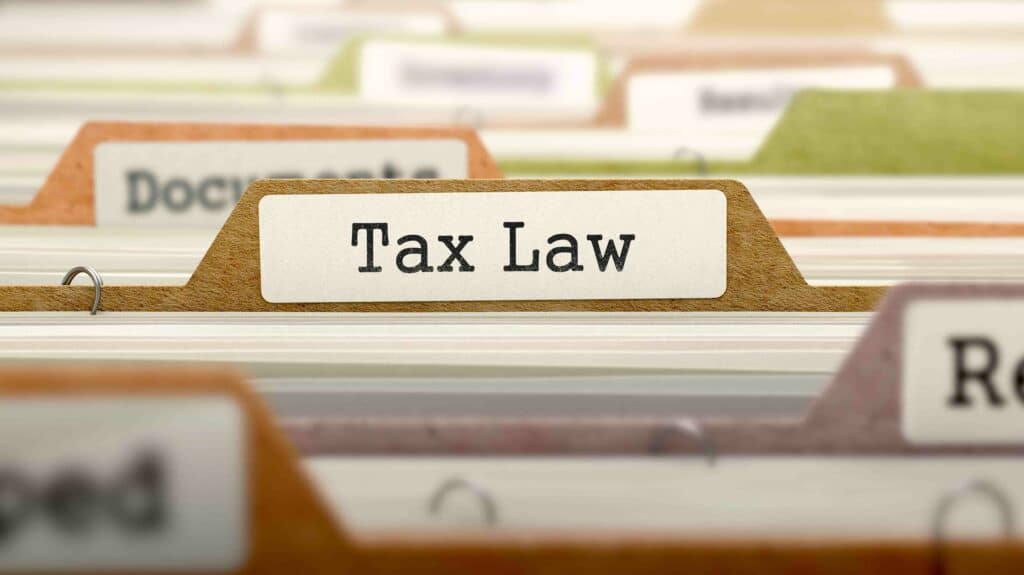Non-economic activities have to be accounted separately from economic activities. The exercise of public tasks assigned by the state cannot protect an undertaking from State aid rules. State aid distorts competition even when it aims to remedy distortions. Introduction Ports, like other transport infrastructures, may operate under public obligations some of which may be of economic and some of non-economic […]
State Aid Law
Blog
State Aid Uncovered Blog
In Lexxion’s State Aid Uncovered blog, Prof. Phedon Nicolaides publishes weekly critical analyses of recent State aid judgments and decisions. Each post presents the key points of a court judgment or EU Commission decision, places it in the context of similar case law or practice, assesses the underlying reasoning and highlights any inconsistencies or contradictions.
Guest contributions from other State aid experts will also be published on the blog at irregular intervals to complement the content of the blog posts.
State Aid Uncovered ×
21. May 2019 |
State Aid Uncovered
by Phedon Nicolaides
16. May 2019 |
State Aid Uncovered
by Phedon Nicolaides
A competitor must show that it is substantially affected by State aid approved by the Commission in order to challenge the Commission’s decision. Merely being affected by the aid is not enough. To show that aid has a substantial impact, it is first necessary to define the relevant market. This is different from the “distortion of competition” in the meaning […]
7. May 2019 |
State Aid Uncovered
by Phedon Nicolaides
Public funding of infrastructure which is not constructed for the specific needs of a company is not State aid. Introduction An article carried by the Financial Times on 1 May 2019 revealed that Jaguar Land Rover [JLR] decided to make again the iconic Land Rover Defender. The production of this legendary off-roader ended about 10 years ago because it […]
30. April 2019 |
State Aid Uncovered
by Phedon Nicolaides
A Commission decision that affects the legal position of an undertaking is actionable before EU courts. The opening of the formal investigation procedure must lead the Member State concerned to suspend the aid measure and may result in a recovery ruling by a national court. The Commission must be consistent in its reasoning. If it cannot use certain information at […]
23. April 2019 |
State Aid Uncovered
by Phedon Nicolaides
There is crucial difference between control by the state over resources and attribution to the state of the aid granting decision. Introduction According to the latest edition of the State aid Scoreboard, in 2017 Member States granted a total of EUR 105 billion of State aid to manufacturing and services. Of that amount, 58% or EUR 61 billion supported […]
16. April 2019 |
State Aid Uncovered
by Phedon Nicolaides
State measures which are linked and produce both positive and negative effects, must be considered together to determine whether they confer a net advantage to undertakings. Counter-guarantees must be taken into account to determine the existence of advantage even if they are provisional. Introduction Member States have in a number of cases tried to defend tax reductions or tax […]
9. April 2019 |
State Aid Uncovered
by Phedon Nicolaides
Discretion in the form of intervention can remove it from the control of the state. Introduction Suppose a thug puts a gun to your head and demands your wallet. Because you have sentimental photos in your wallet, you offer instead the keys to your car. You would rather lose the car than the wallet. Can the thug claim in […]
3. April 2019 |
State Aid Uncovered
by Phedon Nicolaides
Public funding of functionally and commercially severable parts of an infrastructure project may have incentive effect even after construction is completed on some of the parts. A subsidy for the operation of a toll motorway may not constitute State aid. Introduction State aid granted to a project that has already started lacks incentive effects and, therefore, cannot be found […]
26. March 2019 |
State Aid Uncovered
by Phedon Nicolaides
Assurances from granting authorities cannot guarantee the legality of State aid. Aid recipients must verify that the aid is granted correctly. Introduction The Commission must stop its misguided policy of not making public the answers it provides to Member States on questions of interpretation of the General Block Exemption Regulation [GBER]. This is one of the consequences of a […]
19. March 2019 |
State Aid Uncovered
by Phedon Nicolaides
The autonomy that Member States enjoy in the field of direct taxation must be exercised in compliance with EU State aid law. A State aid measure is considered to be a “scheme” when (a) no further implementing acts are necessary, (b) the granting authority has no discretion in how the measure is applied and (c) the measure defines the eligible […]
State Aid Uncovered ×
21. May 2019 |
State Aid Uncovered
by Phedon Nicolaides
Non-economic activities have to be accounted separately from economic activities. The exercise of public tasks assigned by the state cannot protect an undertaking from State aid rules. State aid distorts competition even when it aims to remedy distortions. Introduction Ports, like other transport infrastructures, may operate under public obligations some of which may be of economic and some of non-economic […]
16. May 2019 |
State Aid Uncovered
by Phedon Nicolaides
A competitor must show that it is substantially affected by State aid approved by the Commission in order to challenge the Commission’s decision. Merely being affected by the aid is not enough. To show that aid has a substantial impact, it is first necessary to define the relevant market. This is different from the “distortion of competition” in the meaning […]
7. May 2019 |
State Aid Uncovered
by Phedon Nicolaides
Public funding of infrastructure which is not constructed for the specific needs of a company is not State aid. Introduction An article carried by the Financial Times on 1 May 2019 revealed that Jaguar Land Rover [JLR] decided to make again the iconic Land Rover Defender. The production of this legendary off-roader ended about 10 years ago because it […]
30. April 2019 |
State Aid Uncovered
by Phedon Nicolaides
A Commission decision that affects the legal position of an undertaking is actionable before EU courts. The opening of the formal investigation procedure must lead the Member State concerned to suspend the aid measure and may result in a recovery ruling by a national court. The Commission must be consistent in its reasoning. If it cannot use certain information at […]
23. April 2019 |
State Aid Uncovered
by Phedon Nicolaides
There is crucial difference between control by the state over resources and attribution to the state of the aid granting decision. Introduction According to the latest edition of the State aid Scoreboard, in 2017 Member States granted a total of EUR 105 billion of State aid to manufacturing and services. Of that amount, 58% or EUR 61 billion supported […]
16. April 2019 |
State Aid Uncovered
by Phedon Nicolaides
State measures which are linked and produce both positive and negative effects, must be considered together to determine whether they confer a net advantage to undertakings. Counter-guarantees must be taken into account to determine the existence of advantage even if they are provisional. Introduction Member States have in a number of cases tried to defend tax reductions or tax […]
9. April 2019 |
State Aid Uncovered
by Phedon Nicolaides
Discretion in the form of intervention can remove it from the control of the state. Introduction Suppose a thug puts a gun to your head and demands your wallet. Because you have sentimental photos in your wallet, you offer instead the keys to your car. You would rather lose the car than the wallet. Can the thug claim in […]
3. April 2019 |
State Aid Uncovered
by Phedon Nicolaides
Public funding of functionally and commercially severable parts of an infrastructure project may have incentive effect even after construction is completed on some of the parts. A subsidy for the operation of a toll motorway may not constitute State aid. Introduction State aid granted to a project that has already started lacks incentive effects and, therefore, cannot be found […]
26. March 2019 |
State Aid Uncovered
by Phedon Nicolaides
Assurances from granting authorities cannot guarantee the legality of State aid. Aid recipients must verify that the aid is granted correctly. Introduction The Commission must stop its misguided policy of not making public the answers it provides to Member States on questions of interpretation of the General Block Exemption Regulation [GBER]. This is one of the consequences of a […]
19. March 2019 |
State Aid Uncovered
by Phedon Nicolaides
The autonomy that Member States enjoy in the field of direct taxation must be exercised in compliance with EU State aid law. A State aid measure is considered to be a “scheme” when (a) no further implementing acts are necessary, (b) the granting authority has no discretion in how the measure is applied and (c) the measure defines the eligible […]
State Aid Uncovered ×
21. May 2019 |
State Aid Uncovered
by Phedon Nicolaides
Non-economic activities have to be accounted separately from economic activities. The exercise of public tasks assigned by the state cannot protect an undertaking from State aid rules. State aid distorts competition even when it aims to remedy distortions. Introduction Ports, like other transport infrastructures, may operate under public obligations some of which may be of economic and some of non-economic […]
16. May 2019 |
State Aid Uncovered
by Phedon Nicolaides
A competitor must show that it is substantially affected by State aid approved by the Commission in order to challenge the Commission’s decision. Merely being affected by the aid is not enough. To show that aid has a substantial impact, it is first necessary to define the relevant market. This is different from the “distortion of competition” in the meaning […]
7. May 2019 |
State Aid Uncovered
by Phedon Nicolaides
Public funding of infrastructure which is not constructed for the specific needs of a company is not State aid. Introduction An article carried by the Financial Times on 1 May 2019 revealed that Jaguar Land Rover [JLR] decided to make again the iconic Land Rover Defender. The production of this legendary off-roader ended about 10 years ago because it […]
30. April 2019 |
State Aid Uncovered
by Phedon Nicolaides
A Commission decision that affects the legal position of an undertaking is actionable before EU courts. The opening of the formal investigation procedure must lead the Member State concerned to suspend the aid measure and may result in a recovery ruling by a national court. The Commission must be consistent in its reasoning. If it cannot use certain information at […]
23. April 2019 |
State Aid Uncovered
by Phedon Nicolaides
There is crucial difference between control by the state over resources and attribution to the state of the aid granting decision. Introduction According to the latest edition of the State aid Scoreboard, in 2017 Member States granted a total of EUR 105 billion of State aid to manufacturing and services. Of that amount, 58% or EUR 61 billion supported […]
16. April 2019 |
State Aid Uncovered
by Phedon Nicolaides
State measures which are linked and produce both positive and negative effects, must be considered together to determine whether they confer a net advantage to undertakings. Counter-guarantees must be taken into account to determine the existence of advantage even if they are provisional. Introduction Member States have in a number of cases tried to defend tax reductions or tax […]
9. April 2019 |
State Aid Uncovered
by Phedon Nicolaides
Discretion in the form of intervention can remove it from the control of the state. Introduction Suppose a thug puts a gun to your head and demands your wallet. Because you have sentimental photos in your wallet, you offer instead the keys to your car. You would rather lose the car than the wallet. Can the thug claim in […]
3. April 2019 |
State Aid Uncovered
by Phedon Nicolaides
Public funding of functionally and commercially severable parts of an infrastructure project may have incentive effect even after construction is completed on some of the parts. A subsidy for the operation of a toll motorway may not constitute State aid. Introduction State aid granted to a project that has already started lacks incentive effects and, therefore, cannot be found […]
26. March 2019 |
State Aid Uncovered
by Phedon Nicolaides
Assurances from granting authorities cannot guarantee the legality of State aid. Aid recipients must verify that the aid is granted correctly. Introduction The Commission must stop its misguided policy of not making public the answers it provides to Member States on questions of interpretation of the General Block Exemption Regulation [GBER]. This is one of the consequences of a […]
19. March 2019 |
State Aid Uncovered
by Phedon Nicolaides
The autonomy that Member States enjoy in the field of direct taxation must be exercised in compliance with EU State aid law. A State aid measure is considered to be a “scheme” when (a) no further implementing acts are necessary, (b) the granting authority has no discretion in how the measure is applied and (c) the measure defines the eligible […]













